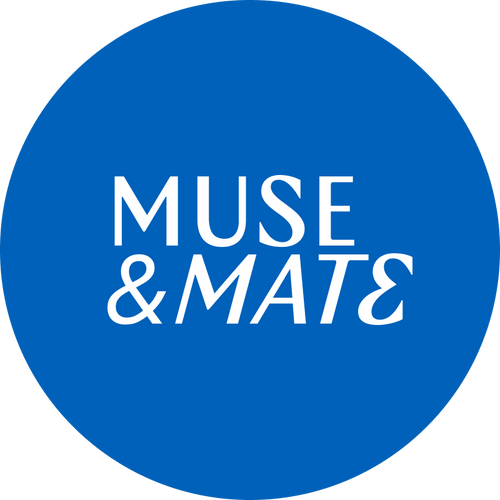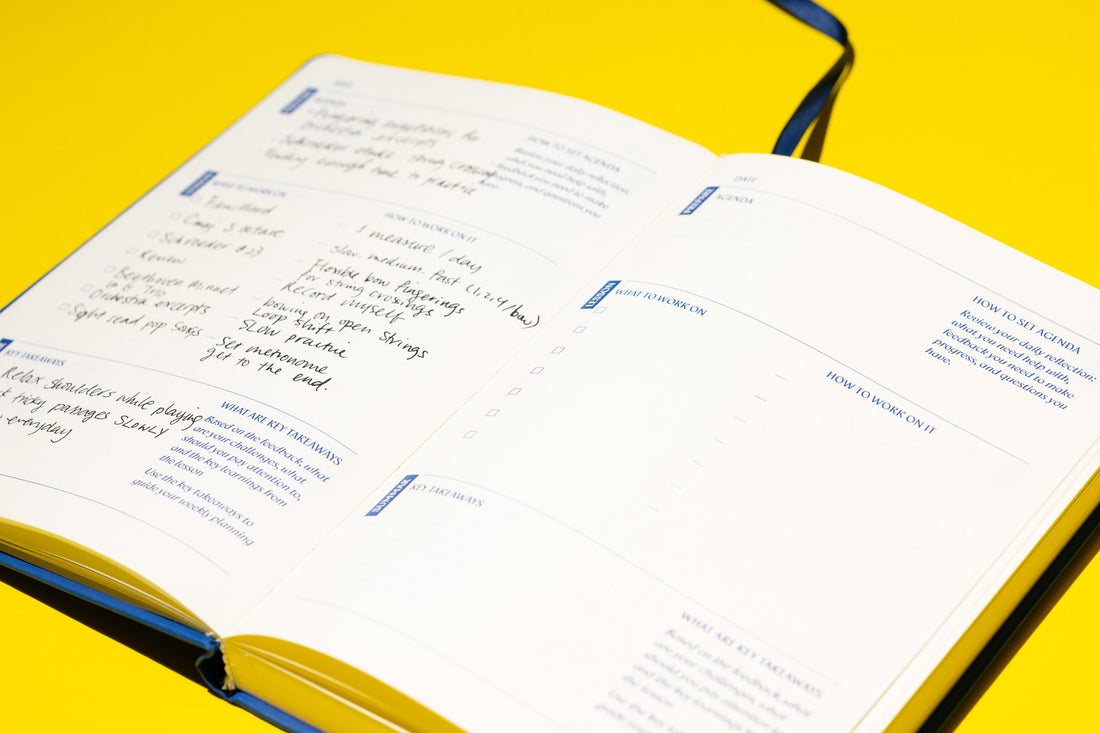Regular lessons are integral to learning an instrument or making steady progress because of the direct and tailored feedback you get from your teacher on how to improve. In the Muse and Mate practice journal, there’s a “Lesson Notes” section that helps you prepare and reflect on your lessons so that you can make the most of your lessons.
How to use Lesson Notes
Preparing for your lessons means more than checking off the materials from your last lesson. Consider discussing with your teacher what worked well for you and what’s still challenging in your practice, and write them down in the “Agenda” area. These prompts help your teacher give you the specific and tailored feedback you need to achieve your goals.
During the lesson, your teacher will likely go through the materials for you to work on in the following weeks. Be sure to capture not only what to work on, but how to work — what are the areas that you, specifically, need to pay attention to, or work on. Write this down in the “What to work on” and “How to work in it” areas either during or after your lesson.
After your lesson, plan your practice for the following weeks by reflecting on your lesson. Focus on key takeaways and areas of improvement while you go through the materials, and write them down in the “Key Takeaways” area.
At Muse and Mate we love teachers and we respect that every teacher has their own unique teaching style. We designed our journal to be flexible and adaptable–only incorporating elements that are essential to a productive lesson, so that it supports and even augments the beautiful work that each teacher does.
Why is taking lessons important as a musician
A common question we hear is - why pay the big bucks or spend the time searching out a teacher, fitting a lesson time into your calendar, even trekking out with your instrument to their studio, when there are so many online tutorials?
While the online tutorials and DIY learning tools simply can not replace the profound experience of studying to play an instrument and learning to make music together with a real live musician. Here are a few reasons why.
🪞 We need tailored and direct feedback to point out our blindspot as we grow. Playing a musical instrument is a beautifully nuanced and challenging pursuit that encompasses multiple aspects of ourselves - so having someone who knows who we are and how we work, and who is able to adjust and address challenges in different ways, can have a huge impact on our ability to make progress.
🎯 A good teacher will guide you in finding the appropriate materials, exercises, and priorities on which you should focus. We want to find the sweet spot in our efforts: not too hard, not too easy. Erring on either of these extremes might cause us to waste precious time.
👀 Taking lessons keeps us accountable. Have a lesson coming up in 1 week? Well then you know you’ll need to do a little work each day to demonstrate progress to your teacher. (They can usually tell if you’ve done all your practicing the night before ;). Over the long term, these incremental improvements can really add up!
✨ The personal touch and the exchange of inspiring ideas. Finally, there’s the discussion, inspiration, modelling and understanding that a teacher who has devoted their lives to the pursuit of musical excellence can afford for their students. From the student’s perspective, these insights can be invaluable.
If you’re thinking about whether you want to have a teacher, we say yes! And Muse and Mate is carefully designed so that you can capture all of that lesson wisdom. Over the course of time you’ll have a beautiful book brimming with tools and ideas to keep you moving ever forward on your journey towards mastery!
---
Are you someone who's seriously enthusiastic about playing music and taking lessons? The Muse and Mate practice journal might be just the tool you need to take your playing to the next level.

